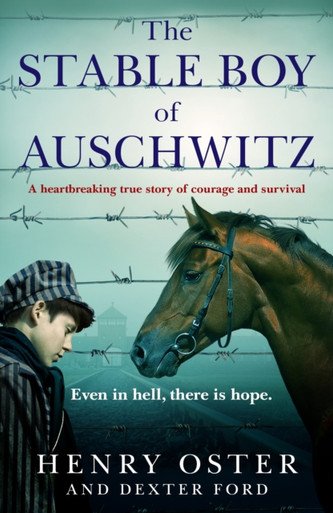
My Favourite Books and Movies
Book - Warsaw 1944 by Alexandra Richie
-
I cried, felt sick and struggled with the horrors on every page of this brilliant book. A must read prior to my Polish exploits.
A sympathetic delineation of one of the grimmest chapters in a savage war.
Though neither a World War II scholar nor military expert, Richie (Faust’s Metropolis: A History of Berlin, 1998) has the advantages of living in Warsaw and familiarity with the location and resources—e.g., a collection of underground newspapers from the war years. As a result, her work exploring what she considers a largely unexposed episode at war’s end—not to be confused with the suicidal Warsaw Ghetto Uprising of 1943—remains engrossing despite the nearly unreadable catalog of horrors inflicted on the victims. The Polish people had been resisting German occupation since the first bombing and invasion in September 1939. Early on, Soviet collusion with Germany in carving up the country left Poles wary of any collaboration, which would have crucial consequences in the summer of 1944, when communication between the Polish and the approaching Soviets might have helped bolster a defense of the city. By June 1944, the Soviets had launched Operation Bagration, creating havoc for the German Army Group Centre and causing nearly half a million casualties. To everyone’s amazement, the Germans began to withdraw from Warsaw until the assassination attempt on Hitler in July, which shook his trust in his generals and elevated Heinrich Himmler and his minions. Warsaw was declared a “fortress city,” to be held at all costs, and a stunning German counteroffensive, engineered by Field Marshal Walter Model, pushed the Soviets out just as the Polish underground army gave the fateful signal to start the uprising. The consequences for Poles and their city were devastating and complete, what the author calls “a Polish Götterdämmerung which would play out before an indifferent world.”
A massively researched, profoundly unsettling work revealing how the battle for Warsaw exposed the perfidy of East and West alike.
Podcast - Adolf Hitler, rise and downfall
-
The Hitler story all the way from Cradle to Grave. A brilliant deep dive into the life the leader of the Third Reich.
Movie - Conspiracy
-
Conspiracy 2001 Directed by Frank Pierson
ONE MEETING. SIX MILLION LIVES.
The historical recreation of the 1942 Wannsee Conference, in which Nazi and SS leaders gathered in a Berlin suburb to discuss the “Final Solution to the Jewish Question”. Led by SS-General Reinhard Heydrich, this group of high ranking German officials came to the historic and far reaching decision that the Jews of Europe were to be exterminated in what would come to be known as the Holocaust.
Book - The Stable boy of Auschwitz
-
This heart-wrenching memoir from a Holocaust survivor reveals the terrible realities of life in Auschwitz—and how a courageous young stable boy survived against all odds to tell his story. “ I couldn ’ t last much longer. But just as I was beginning to give up, I found myself in the Auschwitz stables, with rows of stalls filled with horses.” Henry Oster was just five years old when Adolf Hitler took power in 1933. He was the last survivor of the 2,011 Jews who were rounded up by the Gestapo and deported from Cologne. Assigned to back-breaking labor in the Auschwitz horse-breeding stables, Henry clung to the belief that if he made himself hard to replace, he might stay alive.
Henry was one of the 2,011 Jews who were deported from Cologne, through it all, he found the strength to survive and was one of only 23 to emerge alive from the concentration camps after the war.
How did one starving boy, alone and forgotten, survive this ultimate hell on earth? The Stable Boy of Auschwitz is the heart-breaking, mesmerizing, and unforgettable true story that will destroy your faith in humanity . . . and then build it back up again.
Series - Nuremberg Nazis on Trial
-
In the first episode, Nathaniel Parker plays the most inscrutable Nazi on trial at Nuremberg, Hitler's architect and armaments minister Albert Speer. He was the only defendant who unreservedly accepted responsibility for the Nazis' crimes. But was Speer's remorse genuine or just a clever defense strategy to get off the hook? The film tells the intriguing behind-the scenes-story of Speer's trial and his showdown with unrepentant rival, Hermann Goering. The second episode tells the story of the trial of Hermann Goering, Hitler's charismatic and ruthless second-in-command. On trial for his life at Nuremberg, the unrepentant Reich Marshal turned the tables on the Allies. So much so that Chief Prosecutor Justice Robert Jackson began to wish the Allies had followed Churchill's suggestion and shot the leading Nazis out of hand. This documentary drama traces the behind-the-scenes story of Goering's attempt to re-ignite Nazism from the courtroom and reveals the role that Jewish psychologist, Gustave Gilbert played in Goering's final defeat. In the third and final episode, Ben Cross delivers a compelling performance as Hitler's deputy, Rudolf Hess. After his bizarre flight to Scotland in 1941 to offer peace to Britain, the Fuehrer had Hess declared insane. At Nuremberg, Hess's fitness for trial was at the center of his case. He claimed not to remember his Nazi past and seemingly suffered from paranoid delusions. American psychiatrist Douglas Kelley and prison psychologist Gustave Gilbert sought to unlock the mystery of Hess's state of mind. What they found offers revealing insights into the psychology of Nazism.—Detlef Siebert (Series Producer)



